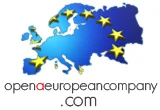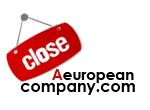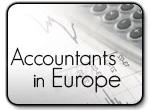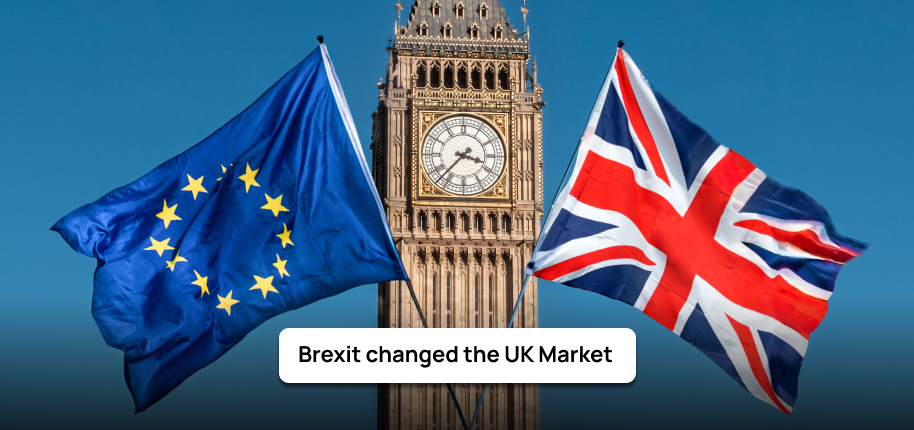The Brexit UK shelf company market has undergone a significant transformation since the United Kingdom officially left the European Union. Once a seamless gateway to all 28 EU countries, the UK was a top destination for international entrepreneurs seeking quick business access across Europe. Shelf companies, pre-registered and dormant, offered a fast-track method to start trading, win contracts, or apply for credit by utilising a legally incorporated entity with business credibility.
However, Brexit reshaped the rules of the game. From compliance shifts to regulatory divergence and banking hurdles, the UK shelf company landscape looks very different today. In this article, we will examine the effects of Brexit on the UK shelf company market, explore new opportunities, and highlight how Readymade Companies Worldwide (RMC) helps entrepreneurs adapt successfully.
What Is a Shelf Company and Why Were They Popular Pre-Brexit?
A shelf company is a business entity that has been legally registered but has remained inactive, with no trading history. It’s called a “shelf” company because it’s been inactive, waiting to be purchased. Once acquired, it can be fully customised with updated directors, shareholders, and business details, offering a fast entry into the market without the delays of fresh incorporation.
Before Brexit, UK shelf companies were particularly popular for several reasons
- They offered instant access to EU markets via the UK’s EU membership.
- They enhanced business credibility due to the age of incorporation.
- They streamlined VAT registration and allowed for smooth cross-border transactions within the EU.
International buyers, particularly from outside Europe, would purchase a UK shelf company as a “hub” for EU operations, thanks to the UK’s stable legal framework and trusted reputation.
Loss of Automatic EU Market Access
One of the most immediate consequences of Brexit was the loss of free movement not just for people, but for goods, services, and capital. For shelf companies, this meant a sudden end to the seamless trade and operation rights that previously came with a UK registration.
A UK company is now treated as a “third country” entity under EU law. This means
- No automatic access to the European Economic Area (EEA).
- Customs declarations are required for EU-UK trade.
- Separate VAT registrations are needed for operating in EU countries.
This has significantly affected the attractiveness of UK shelf companies for businesses whose target market is within the EU. As a result, the Brexit UK shelf company market has seen a shift in buyer profiles and priorities.
Changes in VAT and Tax Obligations
VAT, a crucial aspect of business operations, has also been impacted post-Brexit. Previously, the UK followed the EU VAT Directive, which harmonised procedures and allowed cross-border VAT-free sales under the intra-community supply rules.
Now, UK businesses must
- Charge UK VAT on exports to the EU.
- Register for VAT in individual EU countries when crossing distance-selling thresholds.
- Handle import VAT and customs paperwork for goods entering the EU.
For shelf companies, this translates into more complex VAT registrations and longer setup timelines. Many buyers must now apply for both UK and EU VAT numbers, extending the time to trade.
Increased Demand for Non-UK Shelf Companies
Due to these complexities, there has been a notable shift in demand from the UK to EU-based shelf companies. Jurisdictions such as Ireland, Poland, and the Netherlands have grown in popularity as businesses aim to retain EU market access without post-Brexit barriers.
This trend is powerful among
- E-commerce businesses targeting EU consumers.
- B2B service providers dealing with EU clients.
- Companies want to simplify cross-border VAT and logistics.
For businesses focused solely on the UK market, UK shelf companies remain relevant. But for those with pan-European aspirations, alternatives are now being prioritised.
Regulatory and Compliance Adjustments
The UK no longer follows many EU corporate directives, allowing it to shape its company law and reporting obligations. While this creates more autonomy, it also results in regulatory divergence, which can confuse international buyers.
Changes post-Brexit include
- Adjustments in reporting standards (e.g., UK no longer aligned with EU accounting rules).
- Different GDPR compliance expectations for EU clients.
- Varying capital requirements and banking protocols.
For shelf company buyers, this means needing up-to-date knowledge on UK regulations, particularly if maintaining operations in both the UK and the EU.
UK Shelf Companies Still Valuable for Global Trade
Despite losing automatic EU access, the UK remains a powerful commercial hub. With a strong legal system, business-friendly tax regime, and access to global markets through new trade agreements, UK shelf companies are still a strategic asset for the right type of business.
Key strengths of the UK post-Brexit include
- Independent trade deals with CPTPP, Australia, and Gulf nations.
- A well-developed digital banking and financial services ecosystem.
- Access to a vast Commonwealth network.
UK shelf companies remain highly relevant for
- Domestic startups.
- Global traders use the UK as a headquarters.
- Businesses targeting English-speaking markets.
Banking and KYC Implications Post-Brexit
Brexit has also influenced banking in the UK. UK financial institutions have introduced enhanced due diligence checks for international buyers, particularly those outside the UK.
Post-Brexit KYC changes include
- Tighter ID verification for non-resident directors.
- Requirements for physical UK addresses and business plans.
- Longer onboarding processes for foreign clients.
For shelf company buyers, this can delay business launch unless the company is pre–screened, adequately documented, and compliant with bank expectations.
Opportunities in the Post-Brexit Market
While Brexit brought challenges, it also unlocked new opportunities for shelf companies tailored to the UK market. Freed from EU regulation, the UK has streamlined some business processes, opened new trade avenues, and fostered innovation-friendly policies.
Emerging areas of growth include
- Fintech and RegTech – Faster licensing and regulatory support.
- Consultancy and tech services – Increased demand from UK-based businesses needing EU strategy advice.
- UK public tenders – Less competition from EU companies post-Brexit.
For businesses operating within the UK or targeting global (non-EU) markets, a UK shelf company remains a valuable and time-efficient vehicle.
Comparison Table – Pre-Brexit vs Post-Brexit UK Shelf Company Market
| Feature | Pre-Brexit UK Shelf Company | Post-Brexit UK Shelf Company |
| EU Market Access | Yes (automatic via EU membership) | No (requires separate EU registration) |
| VAT Simplicity | Intra-community trade rules | Cross-border VAT complexity |
| Buyer Interest | Global + EU buyers | Primarily UK-focused buyers |
| Regulatory Alignment with EU | Full alignment | Diverging standards |
| Bank Account Setup for Foreigners | Easier for EU residents | Stricter due diligence |
| Market Opportunities | UK + EU | UK + Global/Commonwealth |
How RMC Supports Shelf Company Buyers Post-Brexit?
We help entrepreneurs, investors, and consultants adapt to the Brexit UK shelf company market with confidence.
Our services include
- Fully compliant UK shelf companies, ready for immediate use.
- VAT registration, UTR setup, and assistance with banking documentation.
- Nominee director and shareholder services to simplify onboarding.
- Dual setup support for clients needing both UK and EU entities.
- Post-Brexit guidance for regulatory changes and compliance.
Whether you’re starting locally or scaling globally, we ensure your shelf company matches the new market conditions.
Conclusion
The Brexit UK shelf company market has evolved significantly since the UK left the European Union. What was once a direct channel into the European market has now become a more complex yet still valuable business route. Entrepreneurs must now consider VAT barriers, banking hurdles, and compliance shifts, while also recognising the emerging benefits of the UK’s post-Brexit trade policies. UK shelf companies continue to offer fast market entry, legal stability, and strategic trade advantages, particularly for UK-based or global-facing businesses.
However, EU-focused companies may require additional support or dual-entity strategies. By staying informed and working with expert providers like RMC, businesses can still harness the power of shelf companies in the post-Brexit world with the proper guidance, structure, and compliance strategy. Ready to take the next step? Get in touch with RMC to explore shelf company options tailored for the post-Brexit market.




